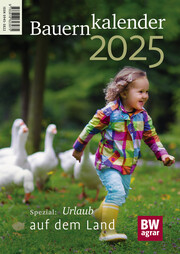The Effect of Bio-pesticides on Store pests of sorghum in South Sudan (kartoniertes Buch)
The Effect of Bio-pesticides on Store pests of sorghum in South Sudan
Erschienen am
03.06.2020
Bibliographische Informationen
ISBN/EAN: 9786138345084
Sprache: Englisch
Seiten: 52 S.
Fomat (h/b/t): 0.4 x 22 x 15 cm
Auflage: 1. Auflage 2020
Bindung: kartoniertes Buch
Beschreibung
Sorghum, Sorghum bicolor (L) is the main staple food for most South Sudanese people and is believed to have been first domesticated in North Africa around 1000 BC. In South Sudan, harvested sorghum is stored in different types of storage structures; in-hut storage, (gugus), barns and underground pits. However, in all the different types of storage structures, the grain and flour are often attacked by a complex of insect pests notably; Trogoderma granarium and Rhyzopertha dominica. The main objectives of the study were: (i) to determine the efficacy of preparations of Neem or Desert date at varying concentrations, on the biology and mortality of R. dominica and T. granarium on sorghum. (ii) Assess the effect of different levels of jute sack treatments with Neem, A. indica or Desert date, B. aegyptiaca, products on incidence and damage by storage pests of sorghum. In study one, the treatments used were; Neem seed kernel powders, Neem leaf powders, Desert date, seed kernel powders, Desert date leaf powders, a control of Actellic, and untreated control. The treatments were admixed at concentrations of 2.5, 5.0 and 7.5g with 100g of sorghum grains, in glass jars.
Autorenportrait
Catherine Santilino: Juba Univ., College of Natural Resources and Environmental Studies, Juba, Rep. of South Sudan. J. Karungi: Makerere Univ., College of Crop Science, Dept. of Agricultural Production, Entomology, Pest Management, Kampala, Rep. of Uganda. S. Binyason: Dr. John Garang Memorial Univ. of Science and Technology, Rep. of South Sudan.
Weitere Artikel aus der Kategorie "Biologie/Landwirtschaft, Gartenbau, Forstwirtschaft, Fischerei, Ernährung"
Lieferbar innerhalb 24 Stunden

Lieferbar innerhalb 24 Stunden

Neuerscheinung






